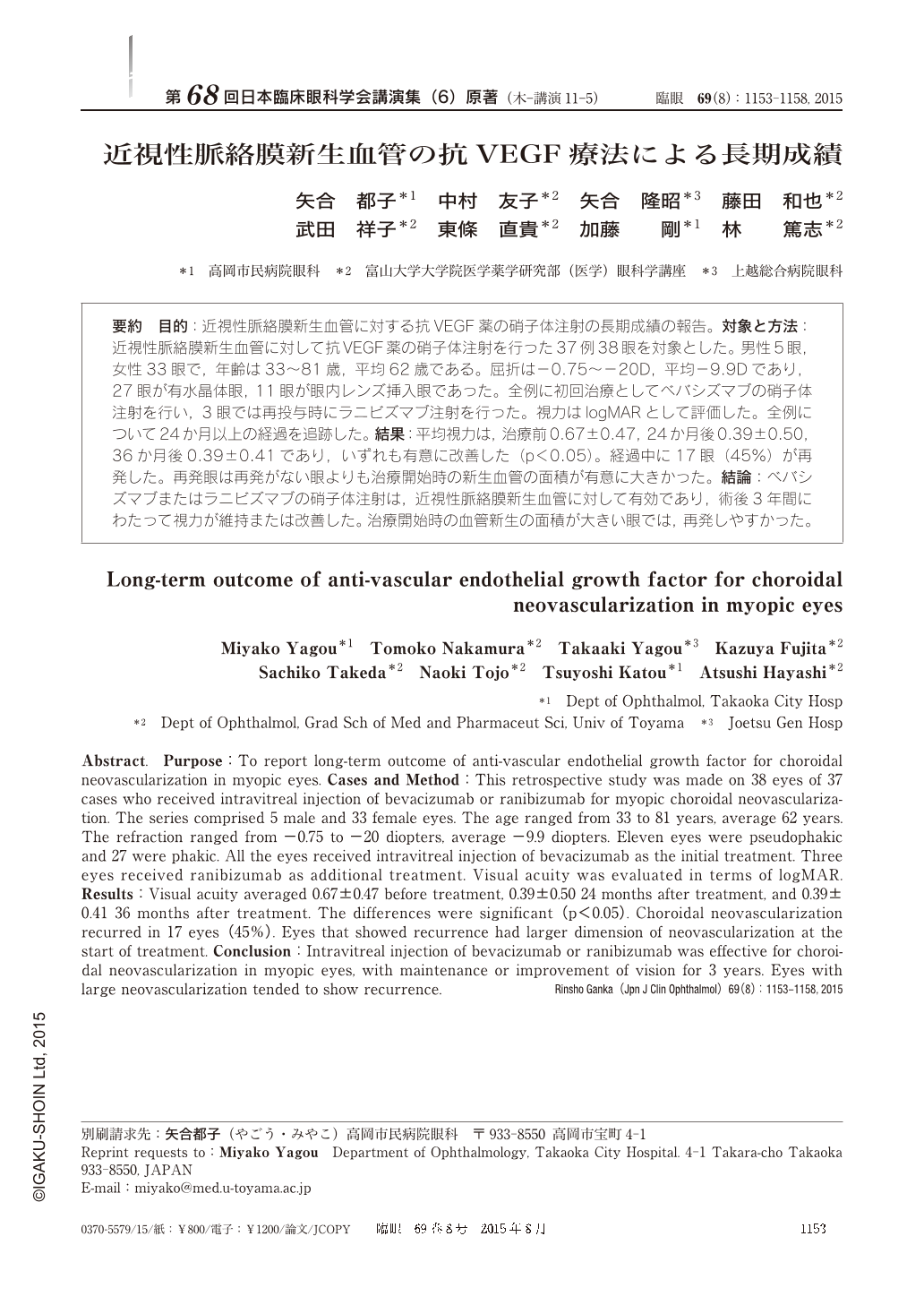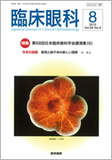Japanese
English
- 有料閲覧
- Abstract 文献概要
- 1ページ目 Look Inside
- 参考文献 Reference
要約 目的:近視性脈絡膜新生血管に対する抗VEGF薬の硝子体注射の長期成績の報告。対象と方法:近視性脈絡膜新生血管に対して抗VEGF薬の硝子体注射を行った37例38眼を対象とした。男性5眼,女性33眼で,年齢は33〜81歳,平均62歳である。屈折は−0.75〜−20D,平均−9.9Dであり,27眼が有水晶体眼,11眼が眼内レンズ挿入眼であった。全例に初回治療としてベバシズマブの硝子体注射を行い,3眼では再投与時にラニビズマブ注射を行った。視力はlogMARとして評価した。全例について24か月以上の経過を追跡した。結果:平均視力は,治療前0.67±0.47,24か月後0.39±0.50,36か月後0.39±0.41であり,いずれも有意に改善した(p<0.05)。経過中に17眼(45%)が再発した。再発眼は再発がない眼よりも治療開始時の新生血管の面積が有意に大きかった。結論:ベバシズマブまたはラニビズマブの硝子体注射は,近視性脈絡膜新生血管に対して有効であり,術後3年間にわたって視力が維持または改善した。治療開始時の血管新生の面積が大きい眼では,再発しやすかった。
Abstract. Purpose:To report long-term outcome of anti-vascular endothelial growth factor for choroidal neovascularization in myopic eyes. Cases and Method:This retrospective study was made on 38 eyes of 37 cases who received intravitreal injection of bevacizumab or ranibizumab for myopic choroidal neovascularization. The series comprised 5 male and 33 female eyes. The age ranged from 33 to 81 years, average 62 years. The refraction ranged from −0.75 to −20 diopters, average −9.9 diopters. Eleven eyes were pseudophakic and 27 were phakic. All the eyes received intravitreal injection of bevacizumab as the initial treatment. Three eyes received ranibizumab as additional treatment. Visual acuity was evaluated in terms of logMAR. Results:Visual acuity averaged 0.67±0.47 before treatment, 0.39±0.50 24 months after treatment, and 0.39±0.41 36 months after treatment. The differences were significant(p<0.05). Choroidal neovascularization recurred in 17 eyes(45%). Eyes that showed recurrence had larger dimension of neovascularization at the start of treatment. Conclusion:Intravitreal injection of bevacizumab or ranibizumab was effective for choroidal neovascularization in myopic eyes, with maintenance or improvement of vision for 3 years. Eyes with large neovascularization tended to show recurrence.

Copyright © 2015, Igaku-Shoin Ltd. All rights reserved.


